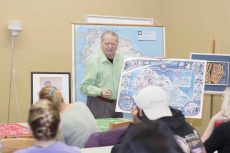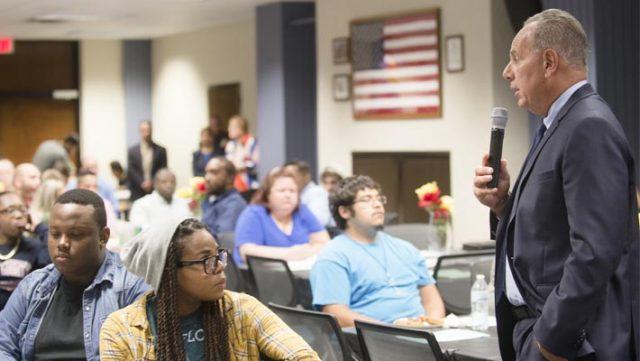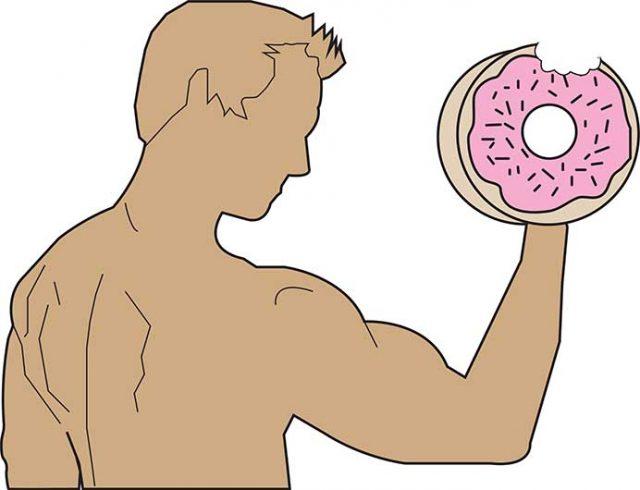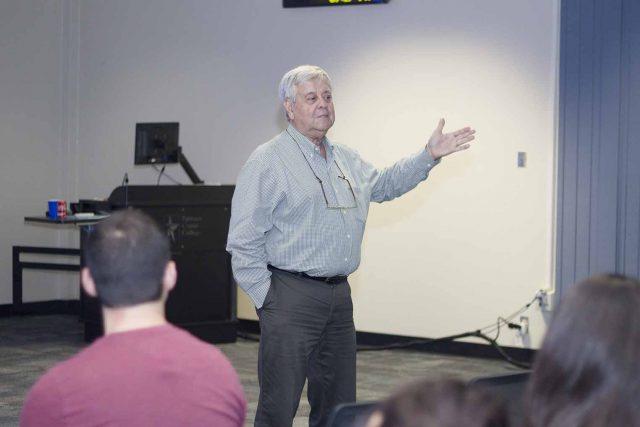By George Michael/ reporter

Bogdan Sierra Miranda/The Collegian
Ecuador is one of the smallest countries in South America, yet it teems with life and tradition, a SE professor said during a speech on the country for Hispanic Heritage Month Sept. 29.
Ivan Mino, a Spanish assistant professor and an Ecuadorian himself, told the audience about the nation’s contrasts from the Galapagos Islands to the Amazon River basin. Mino was born in Quito, Ecuador, and moved to the U.S.
He went on to join the Peace Corps and served for many years, finally returning to the U.S. to teach. He received his master’s degree at the University of California-Irvine, where he is now working toward his doctorate.
His favorite memories were his years playing soccer in high school, where he was named best sportsman and captain for his undefeated team in Staten Island, New York.
Mino shared a video produced by his daughter, who works for the president of Ecuador, showing the country’s nature as well as the people and the way they live.
“The attitude of the people toward nature, they take care of it. They are very proud of it,” he said.
Mino said how important the Galapagos Islands are to the Ecuadorian people and the human race.
“To be in the Galapagos is to be in one of the most beautiful places in the world,” he said.
Mino also spoke about Darwin and his role in discovering the nature that encompasses the Galapagos as well as speaking on how Darwin made an impact on how Ecuadorians would treat nature from then on.
Ecuadorians believe in evolution, and they believe everything should be done with respect in accordance to the nature they live in, Mino said.
“The most famous product of Ecuador, not one of the products that make the most money … the Panama hat,” he said.
Mino spoke on the Amazon, the indigenous tribes within the basin, and the oil trade moving in on that territory. The Ecuadorian government filed suit in court for damages caused by a massive oil spill by the Chevron-Texaco company.
“Oil changes the minds of the people,” Mino said also mentioning the children with black feet that suffered from exposure to the spill.
Next, Mino spent time discussing the artist Oswaldo Guayasamin and the art he produced. Mino gave in-depth insights on the personality and style of the famous artist and shared many paintings around the setting that were among the most known of Guayasamin.
Mino showed La Pieta, Guayasamin’s painting depicting the death of Jesus, along with other artworks.
“He was a very irreverent person as an intellectual,” he said. “He painted this based on a famous painting. The only thing is that in this one he undresses Jesus.”
Speaking on Ecuador and the possibility of a rise out of poverty, Mino shared that he could not see that there would be change.
“With more riches, there is more poverty,” he said.
Ecuadorians love life and nature, he said, and the nation is also one of the best places in the world to retire.
After the presentation, Mino said he loves TCC and the atmosphere he has experienced, leaving big universities for what he has found at TCC.
After his teaching career is over, he said he would retire to Ecuador where he would spend his time with family at home.
“The world is wide and foreign,” he said, “We must explore it.”





























